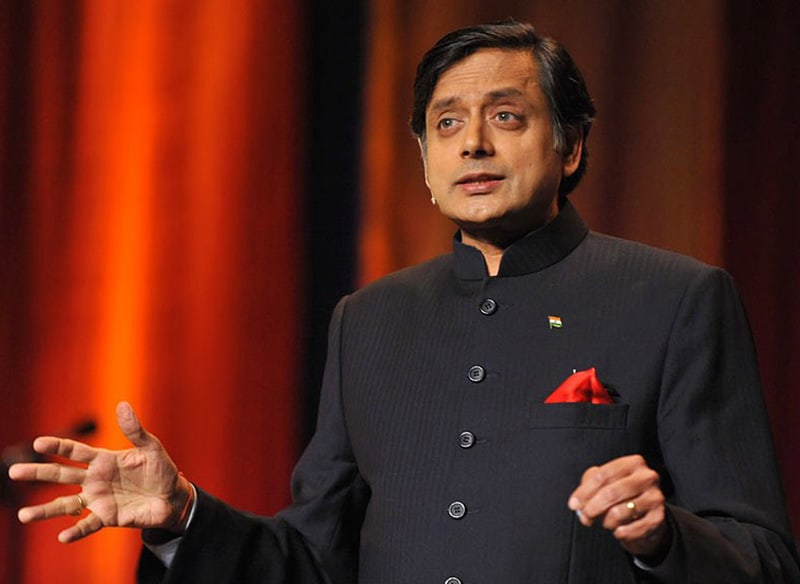India is on the verge of information explosion, where terra-bytes of information passes through our systems on weekly bases. But there are very few strands of them which actually make sense. And that is where, TedTalks podcasts comes to the fore. The sessions at Ted, give you the much needed dose of intelligence and social awareness. Try them and be enlightened, as the speakers at these conferences, when they talk, they make statement of culture and ethos.
Below is our attempt to give a taste of what Ted is, by listing out the talks given by Indians and are not to be missed at any cost
Shashi Tharoor : India is fast becoming a superpower, says Shashi Tharoor — not just through trade and politics, but through “soft” power, its ability to share its culture with the world through food, music, technology, Bollywood. He argues that in the long run it’s not the size of the army that matters as much as a country’s ability to influence the world’s hearts and minds.
Harsha Bhogle : The tale of a major global cultural phenomenon: Cricket commentator Harsha Bhogle describes the spectacular arrival of fast-paced 20-20 cricket as it parallels the rise of modern India. He traces the game from its sleepy English roots to the current world of celebrity owners and million-dollar player contracts.
Kiran Bedi : Kiran Bedi managed one of India’s toughest prisons — and used a new focus on prevention and education to turn it into a center of learning and meditation. She shares her thoughts on crime and punishment from the stage at TEDWomen.
DevDutt Patnaik : Devdutt Pattanaik takes an eye-opening look at the myths of India and of the West — and shows how these two fundamentally different sets of beliefs about God, death and heaven help us consistently misunderstand one another.
Nandan Nilekani : Nandan Nilekani, visionary CEO of outsourcing pioneer Infosys, explains four brands of ideas that will determine whether India can continue its recent breakneck progress.
Arunachalam Muruganantham : When he realized his wife had to choose between buying family meals and buying her monthly “supplies,” Arunachalam Muruganantham vowed to help her solve the problem of the sanitary pad. His research got very very personal — and led him to a powerful business model.
Mallika Sarabhai : At TEDIndia, Mallika Sarabhai, a dancer/actor/politician, tells a transformative story in dance — and argues that the arts may be the most powerful way to effect change, whether political, social or personal.
Sunitha Krishnan : Sunitha Krishnan has dedicated her life to rescuing women and children from sex slavery, a multimilion-dollar global market. In this courageous talk, she tells three powerful stories, as well as her own, and calls for a more humane approach to helping these young victims rebuild their lives.
Pranav Mistry : Pranav Mistry demos several tools that help the physical world interact with the world of data, including a deep look at his SixthSense device and a new, paradigm-shifting paper “laptop.” In an onstage Q&A, Mistry says he’ll open-source the software behind SixthSense, to open its possibilities to all.
Sekhar Kapur : Where does creative inspiration spring from? At TEDIndia, Hollywood/Bollywood director Shekhar Kapur (“Elizabeth,” “Mr. India”) pinpoints his source of creativity: sheer, utter panic. He shares a powerful way to unleash your inner storyteller.
Bunker Roy : In Rajasthan, India, an extraordinary school teaches rural women and men , many of them illiterate, to become solar engineers, artisans, dentists and doctors in their own villages. It’s called the Barefoot College, and its founder, Bunker Roy, explains how it works.
Arvind Gupta : At the Ted Conference, Arvind Gupta shares simple yet stunning plans for turning trash into seriously entertaining, well-designed toys that kids can build themselves — while learning basic principles of science and design.
Lalitesh Katragadda : As of 2005, only 15 percent of the world was mapped. This slows the delivery of aid after a disaster, and hides the economic potential of unused lands and unknown roads. In this short talk, Google’s Lalitesh Katragadda demos Map Maker, a group map-making tool that people around the globe are using to map their world.
Pawan Sinha : Pawan Sinha details his ground-breaking research into how the brain’s visual system develops. Sinha and his team provide free vision-restoring treatment to children born blind, and then study how their brains learn to interpret visual data. The work offers insights into neuroscience, engineering and even autism.
Raghava KK : With endearing honesty and vulnerability, Raghava KK tells the colourful tale of how art has taken his life to new places, and how life experiences in turn have driven his multiple reincarnations as an artist — from cartoonist to painter, media darling to social outcast, and son to father.
…………And many more endless hours of academic and knowledge based talks remain hosted on Ted.com
Hope You Found Our article mildly enlightening…!!
Have something cool to share?? Drop us a mail : contribute@wirally.com


